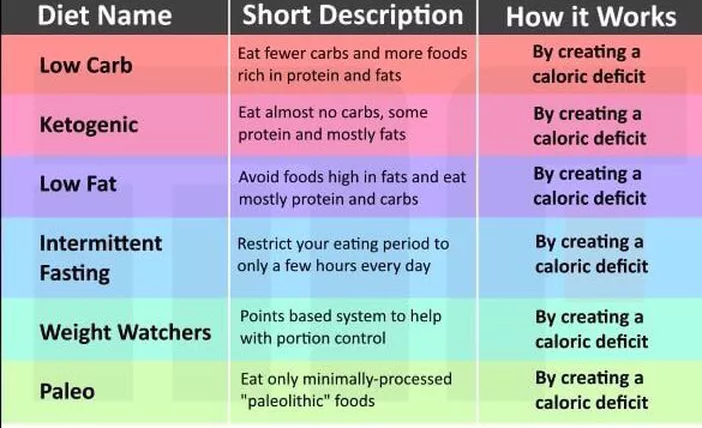There is an abundance of nutrition information just about everywhere and it seems everyone has an opinion about the latest food trend. Let’s clear something up, nutrition is a science, not an opinion. But, it doesn’t stop people from making un-researched, unscientific food claims and clickbait articles about the latest food trends. This can make nutrition much more confusing than it has to be, leaving you unsure of what to believe.
In this weekly series, I’m going to clear up nutrition myths that dietitians everywhere want you to forget.
FACT: Carbohydrates do not lead to weight gain! No ONE food causes weight gain
I often hear people tell me they are going to cut out all the bread, pasta, potatoes, and rice (high carbohydrate foods) from their diet to lose weight. I ask them why and they say “I don’t know, that’s just what I heard works”. It seems like carbohydrates have been demonized everywhere for their role in weight gain. Social media, celebrities, trainers, “nutritionists”, food packages etc. are bashing carbohydrates for their role in gaining weight. Truth is, carbohydrates alone do not lead to weight gain or weight loss.
What are Carbohydrates?
They are the sugars, starches, and fiber found in grains, fruits, vegetables, and dairy products. They are one of the 3 macronutrients (protein and fat are the others) that provide calories for the body’s energy. Carbohydrates are the body’s main source of energy and can transfer to energy in the body rather quickly. When the body uses carbohydrates for fuel, the body can use the other macronutrients for other jobs like tissue growth and repair.
Are Carbohydrates Bad for You?
Simply, NO, they are REALLY good for you and should be incorporated in your diet. They contain essential B vitamins, folate, fiber, and whole grains. Fiber helps you feel full and help you feel satiated which can lead to weight loss. Carbohydrates are high in whole grains and can help you stay regular which will prevent you from being constipated, which is a symptom of low-carb dieters.
Carbohydrates also play many different roles within the human body. Essential bodily functions like your brain, heart, muscles, and kidneys require carbohydrates to function properly and aid in the synthesis of amino acids. Carbohydrates also provide energy to the brain which has been shown to improve memory, mood, and decision making. Researchers believe these improvements are due to the brains release of dopamine (compound in the brain that is triggered when confronted with a pleasurable experience) after eating carbohydrates.
So Why do Carbs get Blamed for Everything?
The Low-Carb diets became popular on the premise that when the body eats carbohydrates the body breaks it down into glucose (sugar). If this glucose is not expended (ex. exercise) the extra glucose will be stored in the liver, muscles, or cells for later use or converted to fat. So, the idea of reducing carbohydrate consumption will help lower insulin levels which will then require the body to use fat for energy, leading to fat loss.
Problem is, the consumption of carbohydrates leading to elevated insulin levels causing weight gain isn’t supported by the research [here and here]. In fact, those studies are consistent with similar research looking at low-carb and keto diets over 5 years in the real world. A meta-analysis of randomized controlled trials found neither low-carb or keto diets provided clinically relevant weight loss differences when compared to high carb diets [here and here]. Essentially, it’s all about overall caloric consumption and not just one thing.
Fact is, we need carbohydrates to provide our body energy, without it we will feel sluggish, irritable, cranky, and run down. The body craves carbohydrates because its the bodies main energy source and converts carbohydrates to energy very quickly and efficiently. If you cut out a majority of your carbohydrates you will feel more tired and lack motivation. This is due to not giving the body what it needs in terms of glucose, but often you are limiting the body from getting essential vitamins and minerals essential for creating energy. Furthermore, if you exercise at least 2-3 times per week your body requires carbohydrates to refill the glycogen stores (energy) in the muscle to push you through a workout.

Bottom Line:
Not one ingredient or food will cause weight gain, its all about the number of calories consumed. The image above explains it all, it doesn’t matter what the diet is called. If you are in a caloric surplus you will gain weight. If you are in a caloric deficit then you will lose weight, it’s that simple. If your goal is to lose weight then those diets can help you be in a caloric deficit. If you have success following one of these diets, it’s not the diet, its that you are consuming fewer calories than what your body exerts per day.
If you aren’t sure how many calories you exert per day/ how many calories you are consuming per day, reach out and we can help!
References:
Hull, M. (2019). Carbs are bad for you. https://examine.com/nutrition/awful-nutrition-myths/
Szalay, J. (2017). What are carbohydrates? https://www.livescience.com/51976-carbohydrates.html

